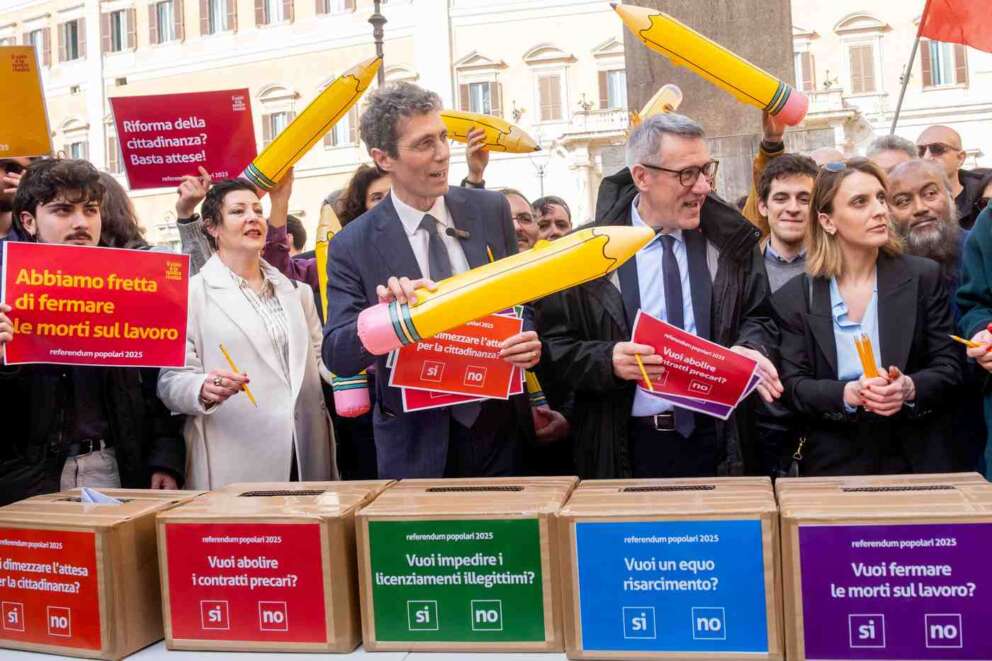Referendum, work and citizenship: the choice is between reaction and reformism

The vote of June 8th and 9th
The possibility of success in the referendums is linked to the compactness of the reformist front and to the belief that the future of the country will depend on this battle.

Referendum. Voting will take place on June 8th and 9th. On two very important issues: workers' rights and the rights of foreign citizens. It will be a matter of deciding whether to maintain the Jobs Act or restore at least part of the Workers' Statute.
The Statute is one of the most important achievements of the workers' movement. It was conceived, written and strongly desired by the Socialist Party that was in government at the time. The battle was led by the Minister of Labor Giacomo Brodolini (Psi) who unfortunately died a few months before its approval (which occurred exactly 55 years ago in May 1970, driven by the famous Hot Autumn). The most important article of the Statute, Article 18 , the one that guaranteed jobs and took power away from employers, was repealed with the Jobs Act. Those who defend the Jobs Act say that in reality that provision favored the increase in employment. The truth is that all the statistics - recently recalled also by President Mattarella - say that from the moment that provision came into force there was a collapse in the purchasing power of wages. And also a very strong reduction in the bargaining power and control of the unions.
Then – again with the referendum – it is a question of allowing foreign citizens who request it to obtain Italian citizenship after five years in which they have lived and worked in Italy. According to the old principle of American liberals: “ No taxation without representation” (that is, you don’t pay taxes without the right to representation, much less citizenship). Foreign citizens who work in Italy pay taxes – unlike many rich Italian citizens – and they also pay “social security” by replenishing the INPS coffers with which pensions are paid to Italians. The referendums will be successful only if at least half of those entitled to vote go to the polls. It is known that at least a third of those entitled to vote will not go to vote in any case, because they are no longer used to going to vote. This is physiological abstention. The political parties linked to the most reactionary classes of society do not want the workers’ statute to return nor do they want foreigners to be recognized with human rights. And then they call on voters to add their votes to those of the physiological abstentions in order to break the quorum.
Let's say that the reactionary forces have a big advantage in this battle. The possibility of affirmation of the referendums is linked to the compactness of the reformist front and to the belief that the future of the country will depend on this battle. Perhaps it will depend more on this vote than on the outcome of the political elections. As it was in 1974, in the referendum for divorce, which determined a turning point in Italian politics. The battle is not between right and left but between forces that want to defend our liberal-socialist and Christian civilization and the forces that instead want to establish a real class dictatorship that will erase decades of conquests.
l'Unità






